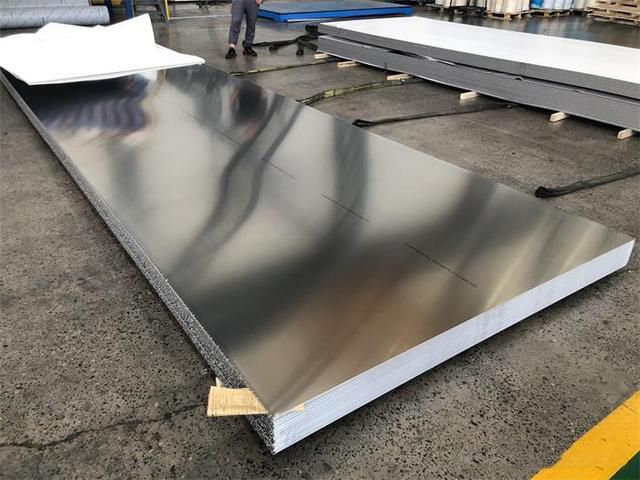Aluminum plates for shipbuilding mainly refer to aluminum alloy plates with added elements such as magnesium (Mg), manganese (Mn), and zinc (Zn). They have the core advantages of lightweight, high corrosion resistance, and excellent weldability. Compared with traditional steel, its density (about 2.7 g/cm³) is reduced by 65%, which significantly reduces the weight of the hull, improves speed and fuel efficiency, and resists seawater corrosion, extending the life of the ship. Certifications such as CCS, DNV, BV, LR will also show the strength of aluminum plate in shipbuilding application.

Marine aluminum plates for shipbuilding are dominated by 5000 series (Al-Mg), supplemented by 6000 series and 7000 series. They are classified according to alloy elements and characteristics as follows:
1. 5000 series (core marine grade aluminum plate alloys)
Main alloy elements Mg (3-5%), Mn Seawater corrosion resistance, excellent weldability, medium strength, non-heat treatment strengthening
5083: hull, deck, bottom;
5052: cabin interior, pipeline;
5456: military ship structure
2. 6000 series
Main alloy elements Mg, Si Heat treatment strengthening, good processability
6061: ship accessories (hinges, valves), superstructures;
6063: masts, decorative parts
3. 7000 series
Main alloy elements Zn, Mg, Cu Ultra-high strength, wear resistance
7075: Ship armor plate, helicopter platform.
Core characteristics and performance advantages of aluminum plate for shipbuilding:
- Marine corrosion resistance
A dense oxide film is formed on the surface of the 5 series alloy to resist salt spray and electrochemical corrosion, and the service life is increased by more than 20 years compared with steel ships;
5083 aluminum sheet for boat building is further inhibited from intergranular corrosion by stabilization treatment in the H321 state.
- Balance of light weight and strength
The specific strength (strength/density) is 3 times that of steel, reducing weight by more than 30%, increasing cargo capacity or speed;
5083 has a tensile strength of 270-350 MPa and an elongation of ≥10%, meeting the hull's requirements for wind and wave impact resistance.
- Welding and processing performance
Applicable to MIG/TIG/resistance welding, with weld strength reaching more than 90% of the parent material, reducing structural weak areas;
Excellent cold bending formability, capable of manufacturing curved hulls and complex sheet metal parts (such as rudders and fuel tanks).
- Environmental protection and maintenance costs
100% recyclable, reducing carbon emissions throughout the life cycle;
No need for painting or simplified coating, maintenance costs are 40% lower than steel ships.
Specific application scenarios of aluminum plate in shipbuilding
- Hull and bottom
5083 thick aluminum plate (20-50mm): As outer plate and keel material, it withstands water flow impact and stranding stress, and the H321 state ensures long-term dimensional stability.
Case: 5083-H116 aluminum plate is used for the bottom plate of the oil tanker, which is corrosion-resistant and reduces the risk of fuel penetration.
- Deck system
Flat deck: 5083 aluminum checker plate (3-10mm), anti-slip design and resistance to seawater accumulation;
Helicopter platform: 7075-T6 reinforced plate, high load support.
- Upper structure and outfitting
Cabin partition: 5052/6061 thin aluminum plate (1.6-5mm), light and easy to form;
Pipeline and fuel tank: 5083 seamless pipe, no crack tendency in welding.
- Special ship types
LNG carrier: 5083 ultra-wide aluminum plate (3300mm width) is used for the inner wall of the liquid tank to reduce the risk of weld leakage;
High-speed patrol boat: 5456 alloy hull, the strength is 15% higher than 5083, suitable for high-speed navigation.
With the growing demand for environmental protection and efficient shipbuilding, the application of aluminum plates in the shipbuilding field has expanded from yachts and ferries to high-end ship types such as warships and LNG carriers, and the market growth rate is significant.